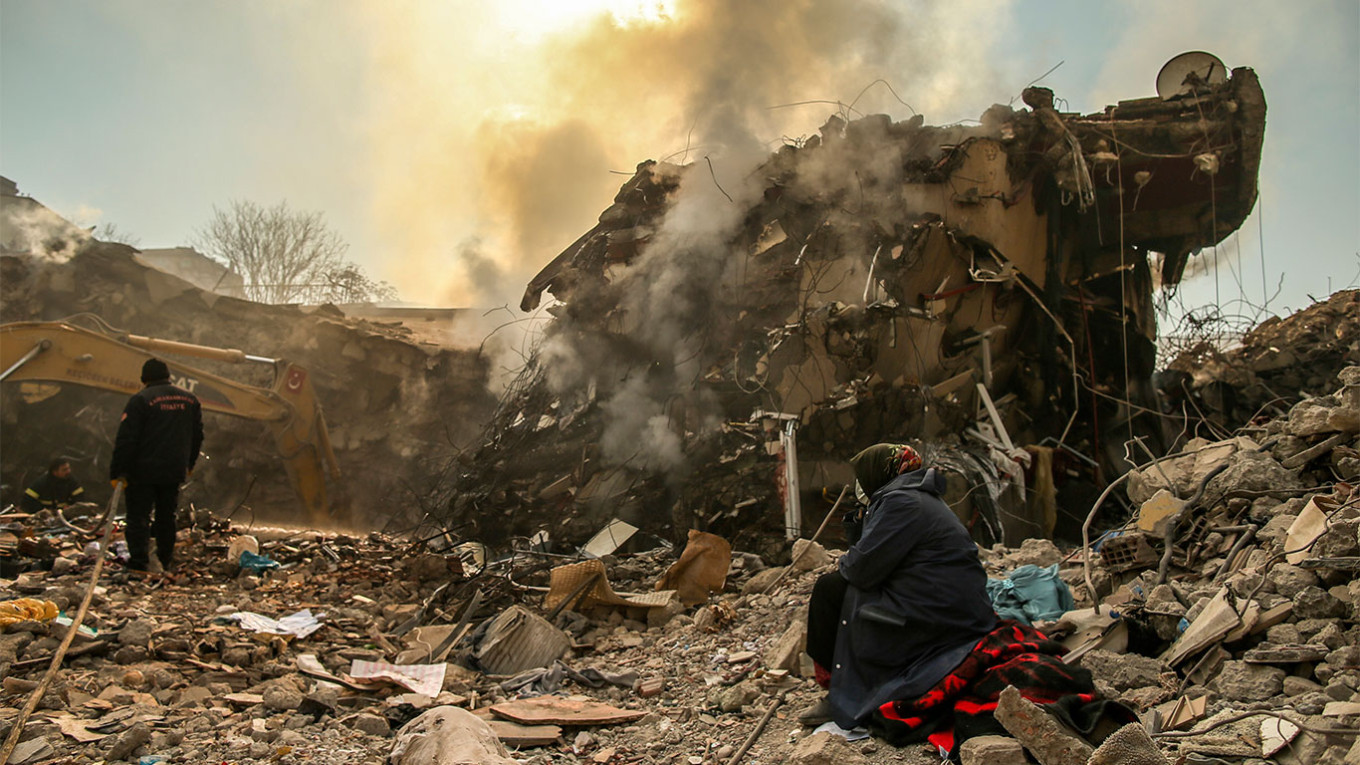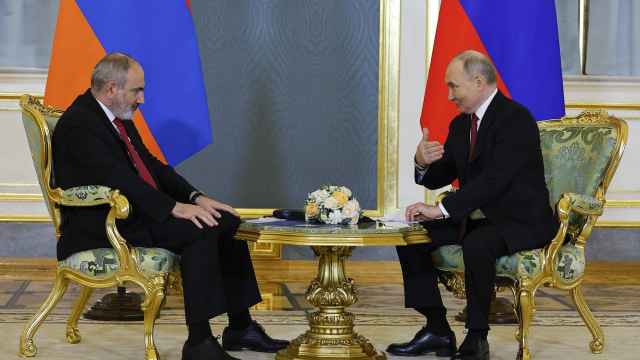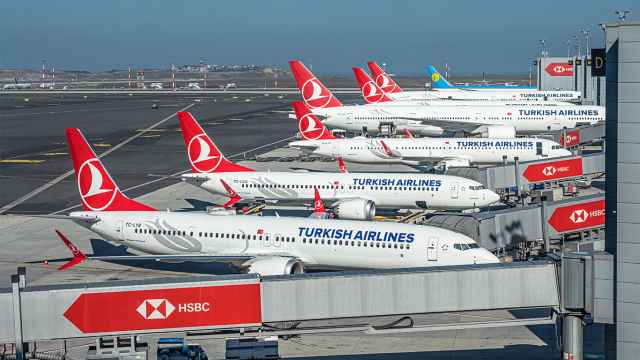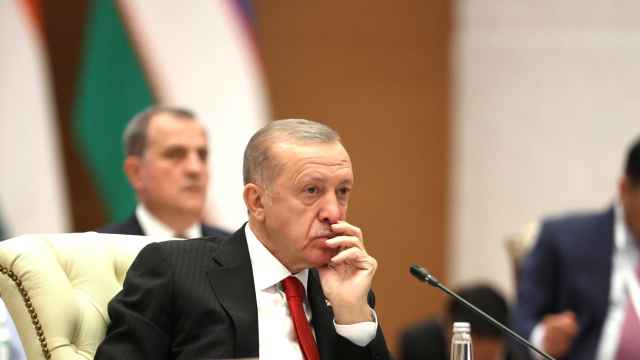Ainur Akhmetov awoke in the early hours of Feb. 6 in his apartment in the Turkish city of Mersin after feeling a sudden jolt.
“Everything around me was shaking, the doors of the closet we have near the bed were violently sliding back and forth. I had never experienced an earthquake before,” said Akhmetov, a digital specialist who settled in the coastal town with his family in October after fleeing military mobilization in his native Russia.
After the initial shock wore off, Akhmetov and his wife decided to join in the humanitarian relief efforts for the deadliest earthquake in modern Turkish history, which has so far left over 35,000 people dead, according to President Recep Tayyip Erdogan on Tuesday.
Located just some 300 kilometers from the earthquake’s epicenter, Mersin, the capital of the southern coastal province of the same name, became a key refuge point for survivors. The city’s recently expanded Russian diaspora, in turn, played a big role in aiding local relief efforts: donating blood, making financial contributions, volunteering at local hospitals and even traveling to affected areas to help with rescue efforts on the ground.

“A miracle happened. A sane Russian society was created here. I don’t know a single Russian citizen here who decided to sit it out and didn’t help. Virtually everyone is doing something,” Akhmetov told The Moscow Times.
“At some point, it seemed to me that some important efforts were led not by the locals but by our people,” he said.
More than 150,000 Russian citizens received Turkish residency permits in 2022, according to the country’s immigration service, putting Turkey among the top destinations for Russians fleeing political repression, military mobilization and the economic consequences of the invasion of Ukraine.
Among the Russian passport holders who have sought refuge in Turkey are many Tatars, the second largest ethnic group in Russia and one that has historically enjoyed close cultural, linguistic, religious and political ties with Turkey.
“Turkey is our promised land where we wanted to find and have found peace,” said Rimma Bikmuhametova, a journalist from Russia’s republic of Tatarstan who settled in Istanbul last year.
Unlike most other recent emigres from Russia, Tatars such as Akhmetov and Bikmuhametova found themselves able to integrate into Turkish society quickly due to their knowledge of Tatar, a Turkic language that enjoys a high degree of mutual intelligibility with Turkish.
“We don’t live an isolated life, we speak to people, we see that many of them lost someone,” said Nail Nabiulla who heads the flagship Tatar independent civil society platform, the Azatlyk Union of Tatar Youth.
Nabiulla, who fled to Istanbul from his native Tatarstan two years ago to avoid political persecution, organized a collection point for donations with his colleagues.
Their aid collection drive came days ahead of a similar initiative by Tatarstan’s official representative in Turkey.
“We saw that the government hadn’t done anything except express its condolences, so we decided that we would do it ourselves on behalf of Tatars elsewhere because the entire world is helping Turkey,” the leader of Azatlyk said.
The group collected hundreds of aid parcels weighing over 700 kilograms in total, which were shipped to the affected areas within the first few days following the earthquake.
But after seeing widespread reports of aid being stolen or simply not reaching certain provinces, the group opted to deliver targeted help to a partner organization in Turkey’s southernmost Hatay province, which borders Syria.
All the boxes collected by Nabiulla are adorned with images of the Tatar flag and signed “From brotherly Tatars.”
“It is very important to show at this moment that Tatars, as a part of the Turkic world, are supporting Turkey,” Nabiulla said in a phone interview with The Moscow Times.
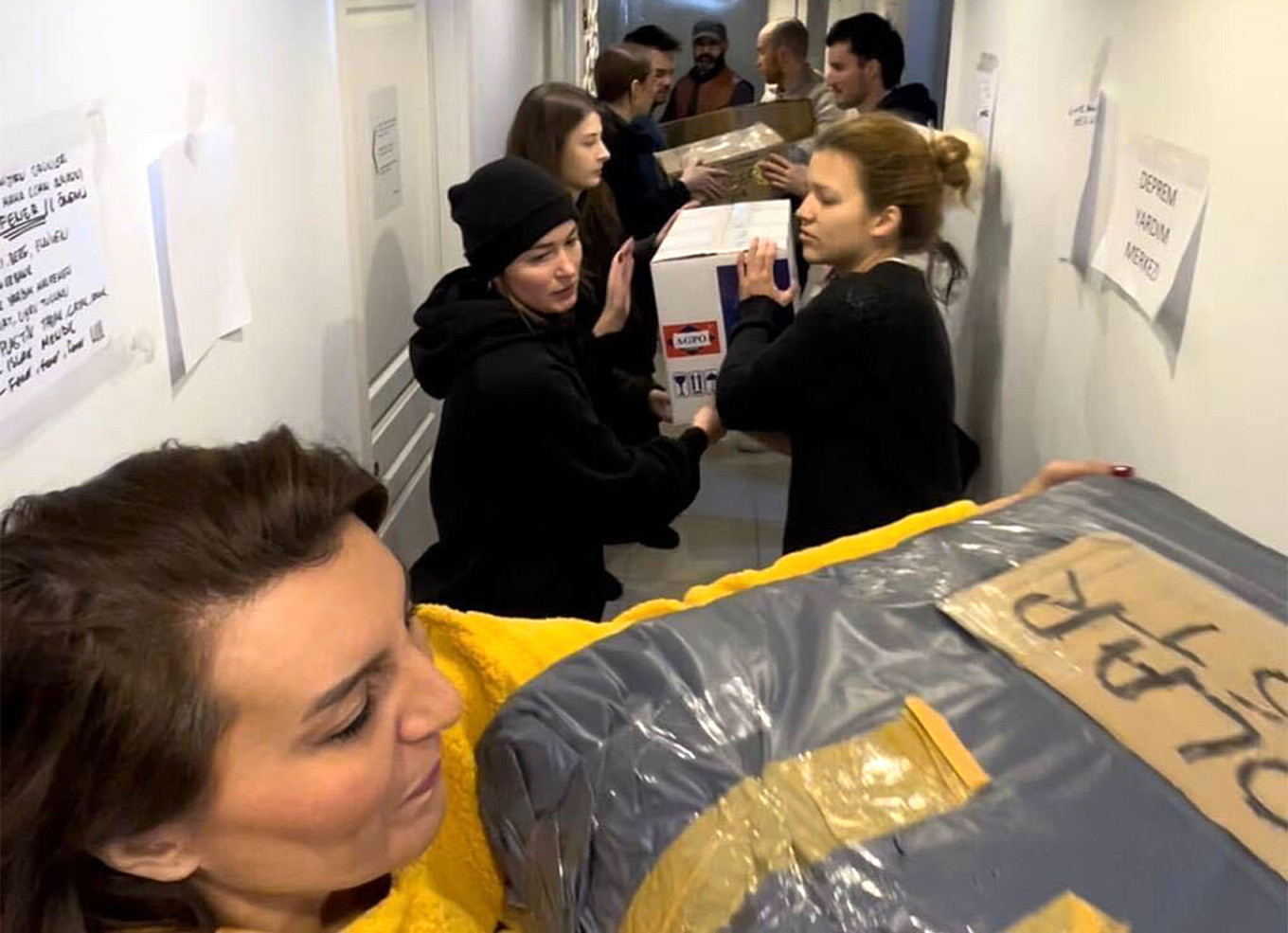
On top of help from those in Turkey, Nabiulla also received an array of small financial contributions from people living in Tatarstan and elsewhere in Russia, ranging from 300 ($4) to 1,000 rubles ($13).
“The economic situation in Russia is very difficult, but many Tatars still donated to their brothers in Turkey,” he said.
Newly arrived Russian immigrants outside the local Tatar community were also quick to offer their help after learning about the various donation initiatives that sprang up across Turkey from emigre group chats on social media.
“I was pleasantly surprised how responsive my friends and friends of friends were, they actively brought in donations and helped with sorting and transporting aid,” said Olya Getman, a Russian-born employee of a gallery in Istanbul’s Cihangir district that transformed its premises into an aid donation hub overnight.
The vast majority of those choosing to volunteer at the gallery had relocated to Turkey within the past year, according to Getman.
“There was a language barrier but everyone worked amicably together,” Getman told The Moscow Times.
The initiative eventually collected six minibusses and three trucks full of aid destined for the badly affected Hatay province.
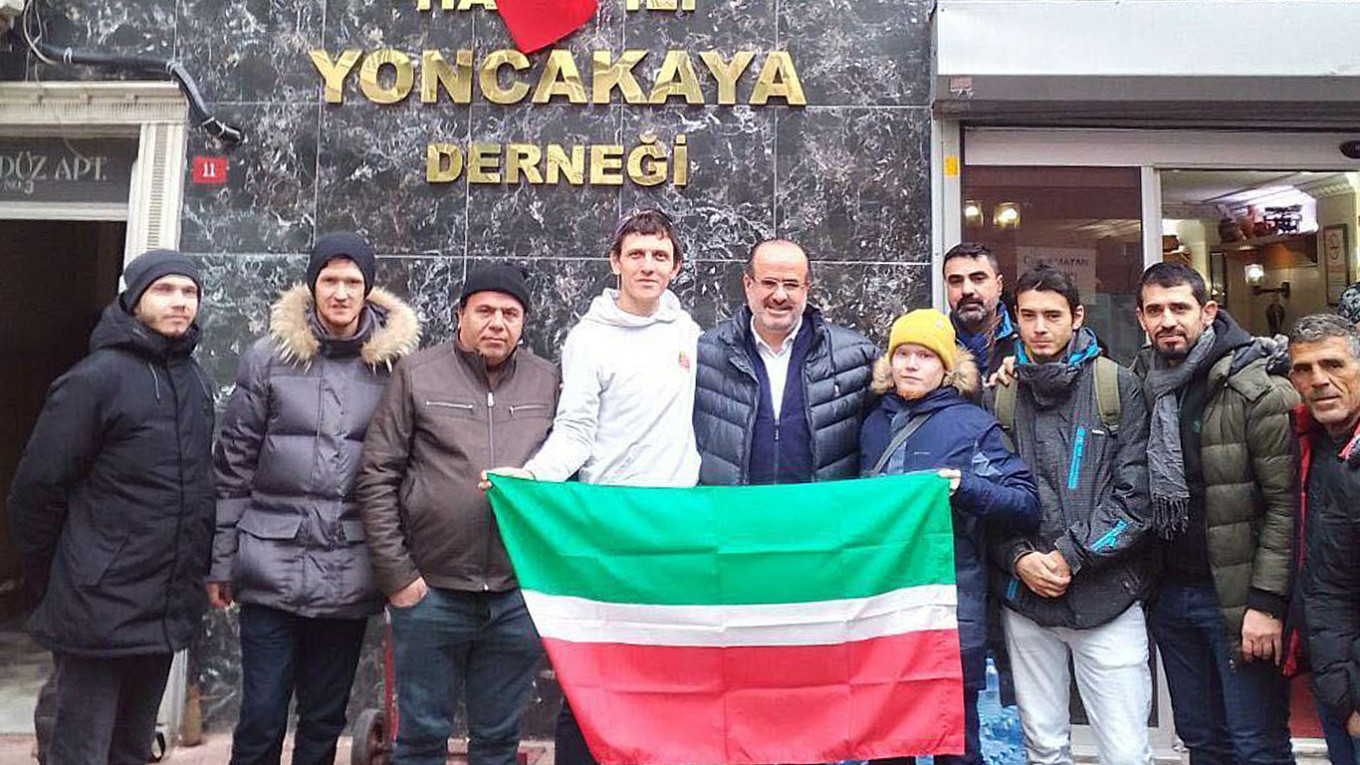
When asked what motivated them to donate money, time and effort to help with earthquake relief efforts, many Russian emigres spoke of a desire to give back to a community that had so recently welcomed them with open arms despite the apparent reluctance of the Turkish authorities to grant residence permits to more Russian passport holders.
“I was born in a small northern town [in Russia] where all of us were raised with the idea that helping each other is crucial. I can’t even imagine just ignoring this,” said Maria Alekseeva, who moved to Turkey from Moscow last March and quickly gathered and donated aid packages to earthquake victims.
“Life is unpredictable, a tragedy can enter anyone’s home and the best that I can do is to be here to help,” she said.
A Message from The Moscow Times:
Dear readers,
We are facing unprecedented challenges. Russia's Prosecutor General's Office has designated The Moscow Times as an "undesirable" organization, criminalizing our work and putting our staff at risk of prosecution. This follows our earlier unjust labeling as a "foreign agent."
These actions are direct attempts to silence independent journalism in Russia. The authorities claim our work "discredits the decisions of the Russian leadership." We see things differently: we strive to provide accurate, unbiased reporting on Russia.
We, the journalists of The Moscow Times, refuse to be silenced. But to continue our work, we need your help.
Your support, no matter how small, makes a world of difference. If you can, please support us monthly starting from just $2. It's quick to set up, and every contribution makes a significant impact.
By supporting The Moscow Times, you're defending open, independent journalism in the face of repression. Thank you for standing with us.
Remind me later.



